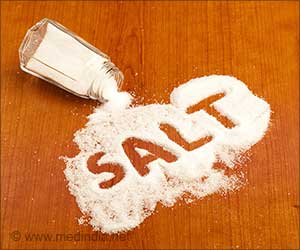
Daniel Kapusta of the LSU Health Sciences Center and Richard Wainford of LSUHSC reported the role of these brain proteins, called Gaq and Gaz, in producing elevated secretion of the hormone, vasopressin, and water retention in salt-sensitive hypertension, a condition in which blood pressure becomes elevated when salt is consumed.
"Throughout the day, vasopressin, a peptide hormone produced by the hypothalamus, is released into the circulation from the pituitary gland and plays a vital role as the flood-gate keeper to prevent excessive loss of water from the kidneys.
"Under most conditions, the water-retaining action of vasopressin is vital for survival. However, it has remained essentially a black box as to why, in susceptible individuals, the regulatory mechanisms that control vasopressin secretion cannot turn off when the body already has elevated water content," said Kapusta.
For 21-days, the research team fed groups of male salt-resistant and salt-sensitive rats a diet containing either normal or high salt.
Then they measured how the treatments influenced the animal's ability to excrete water and how the salt stress altered levels of vasopressin, Gaq and Gaz.
Advertisement
In salt-sensitive rats, the team demonstrated that reducing brain Gaq proteins returned plasma vasopressin to normal levels, decreased salt-induced water retention, and restored the animal's ability to excrete water.
Advertisement
The research was published in the journal Endocrinology.
Source-ANI














